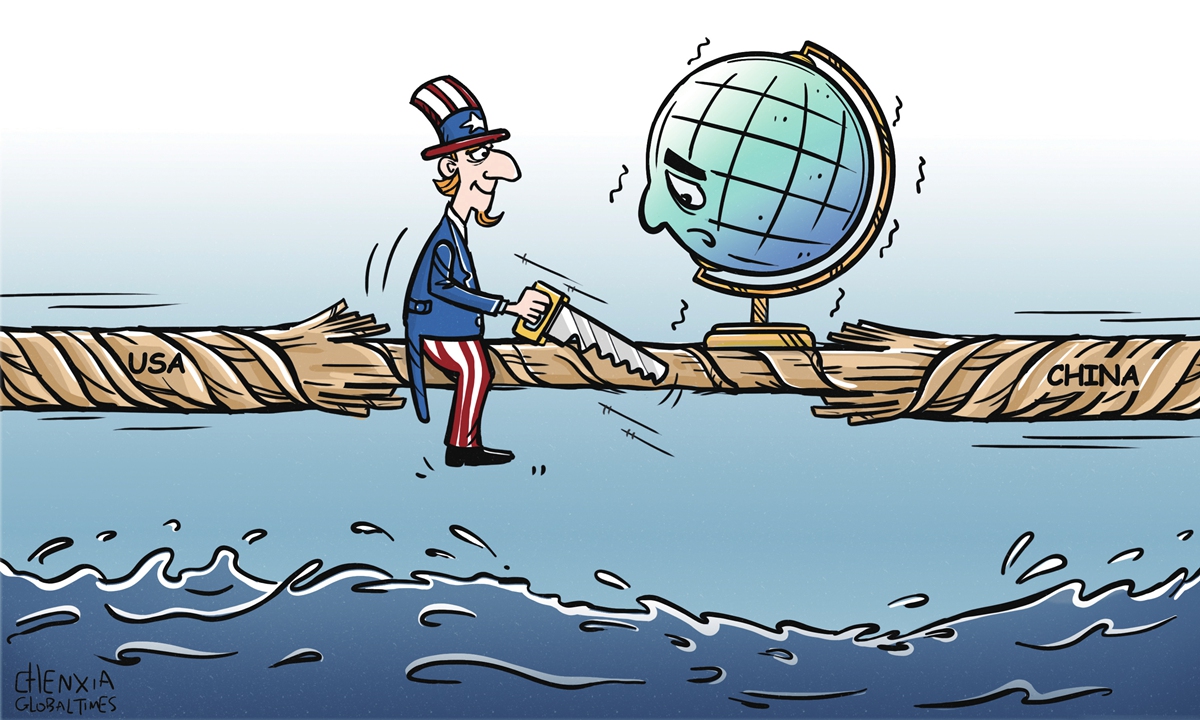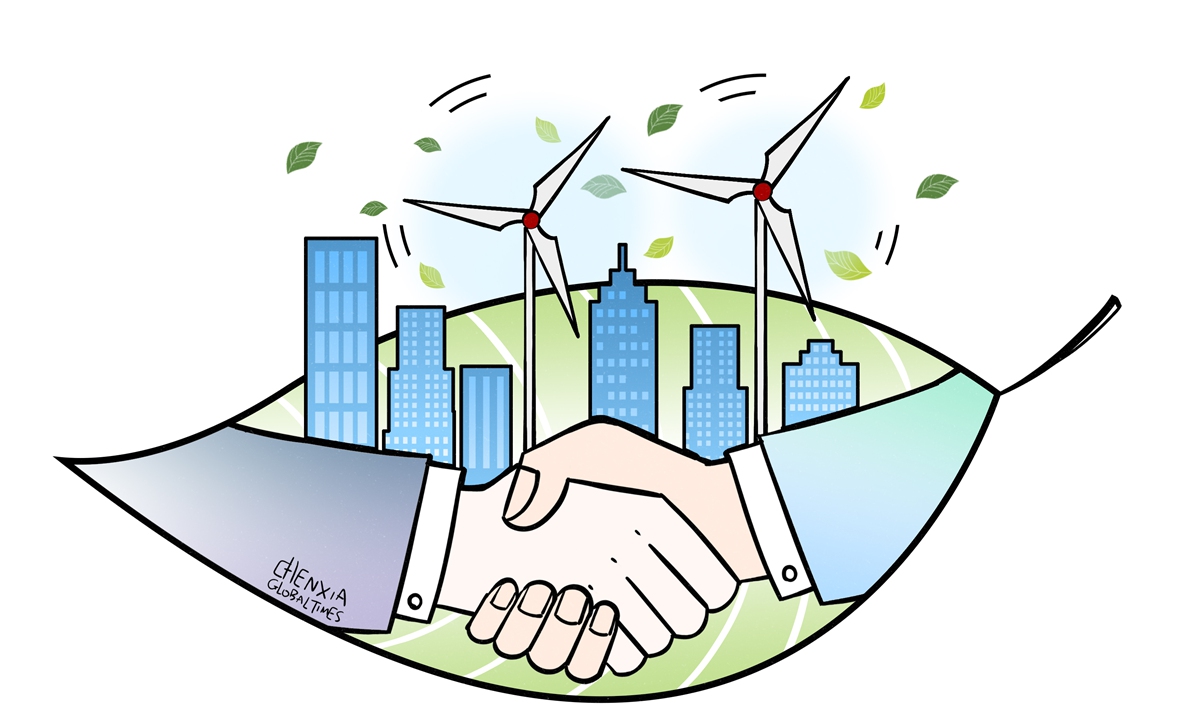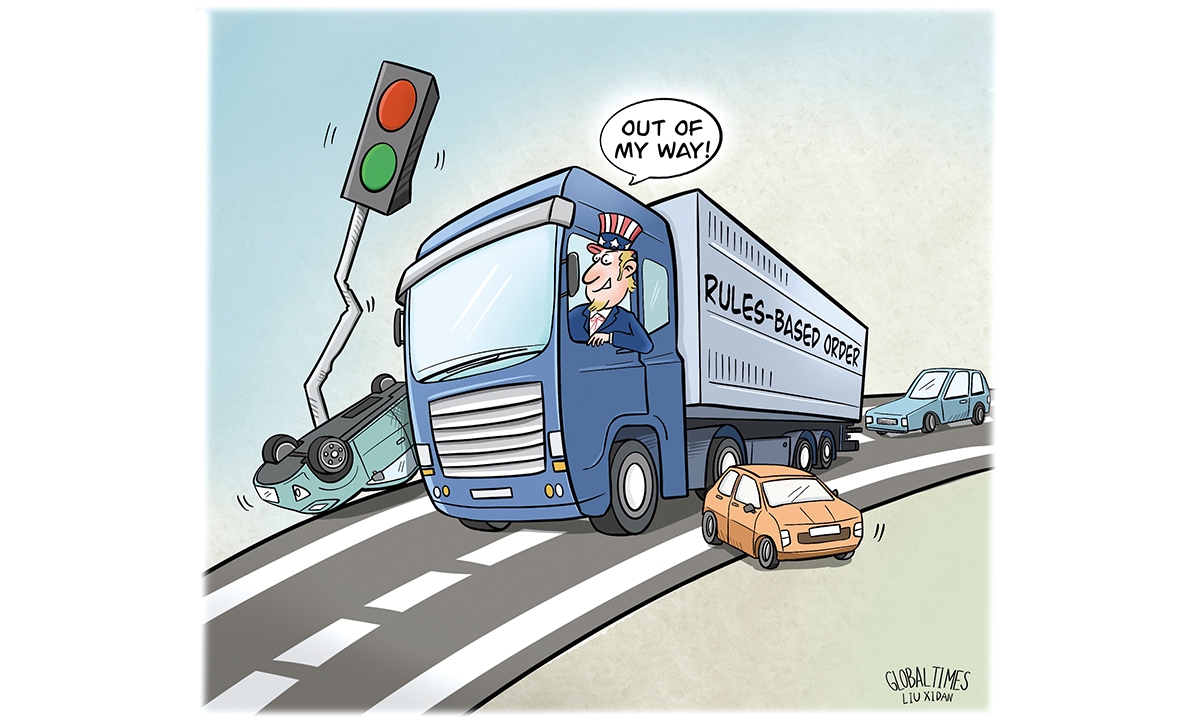
Illustration: Chen Xia/GT
In international politics, terms and jargon are often used to describe a situation or relationship. By doing so, complex issues seem to be simplified and much room is left for further interpretation, either in a good way or a bad one. At a time when snack culture prevails, people can be easily steered, or rather misled, by this kind of rhetoric, with no time to further explore the real meaning or possible factual or logical errors."De-risk," a word coined to summarize the new Western way to deal with China, and amplified by the G7 Hiroshima Communiqué, serves as a good example of this.
Originally, the word "de-risk" was a jargon used in the economic and financial sectors, which means to a hedge against a risk in advance. To de-risk is to get rid of something real that might cause great harm to the economy.
By this token, it remains a question whether Ms. Von der Leyen, President of the European Commission, has thought it through before she called for "de-risk" in the political arena. While acknowledging that China promotes world peace in diplomatic practice and is irreplaceable in merchandise trade with the EU, she still argues that China poses risks. When China and the EU are each other's second largest trade partner and connectivity between the two has brought convenience and well-being to the Eurasian continent, it is hard to grasp the reason why China should be defined as a risk to the EU.
Almost like teamwork, the US administration quickly took over this novelty, eagerly and promptly, and proclaimed that it now prefers "de-risk" to "decouple" when formulating its posture against China. But judging from how it wants to pursue de-risking, the difference between decoupling from China and de-risking against China is just like the pronunciation difference between "tomayto" and "tomahto." They change the expression only because the term "decoupling" did not sell well and it needs new branding
Since we are here to talk about risks, why don't we take a moment to remind people that for quite a long time and on a wide range of issues, the US is still the most "outstanding" global incubator for risks.
- Risk of crisis. Labeled as a beacon of capitalism, the US is indeed a master in the savage capital market and in ripping the world off. In addition to several financial crises that originated in the US, the debt problem is still on the nerves of the world today. The so-called "bipartisan accord" is only to delay the US debt "time bomb" for another two years. Moreover, the solid position of the US dollar means that the US can always crook the rules and use its financial leverage to cause a market tsunami whenever it wants.
- Risk of being coerced. The US is more than willing to go from behind the scenes and use the concept of "national security" to suppress corporations from other countries, and it works well every time. From 2000 to 2021, US sanctions on foreign countries increased by 933 percent, targeting more than 40 countries. If the international market really wants a free circulation and uninterrupted supply chain, the US-made risk must be managed to guarantee a healthier world economy.
- Risk of war. According to a recent report by Brown University, wars launched by the US have caused more than 4.5 million deaths since 2001. And public data show that US military budget accounts for 40 percent of the world's total. The many jokes and memes of the US military operation in the Middle East not only reveal the country's greed and robbery but also highlight the US's intention to sustain its hegemony. The risk of US will ruin the recipe for world peace.
- Risk of division. After the end of the Cold War, the world was looking forward to a brand-new world of multilateralism, based on inclusion and cooperation. Yet, the US, sinking into the nostalgia of its hegemony, seeks to divide the world based on ideologies by forging Five Eyes, QUAD, AUKUS, etc. A spectre is haunting the world - the spectre of a New Cold War.
Compared with the "risks" coming from engagement and trade with China, the above four types of risks from the US should be done with first. Otherwise, how could we have an international order based on fair and secure rules?
The author is a commentator on international affairs, writing regularly for Global Times, China Daily, Xinhua News, CGTN etc. He can be reached at xinping604@gmail.com.


